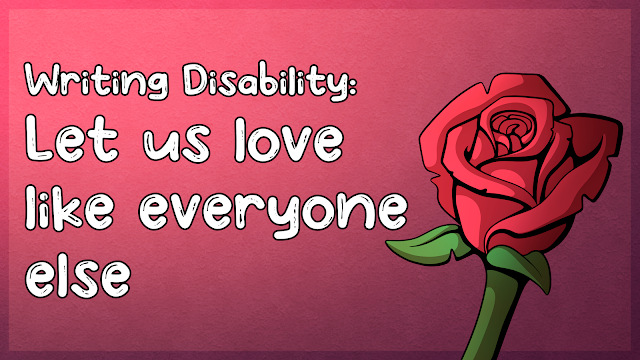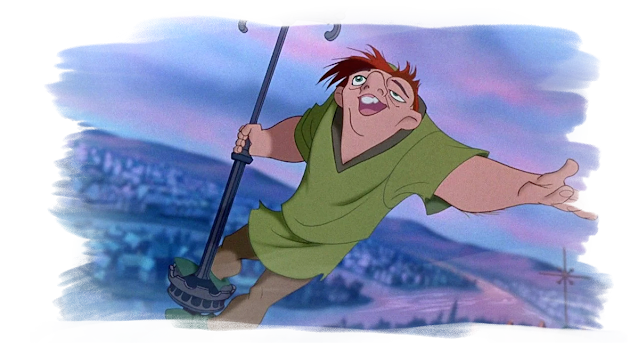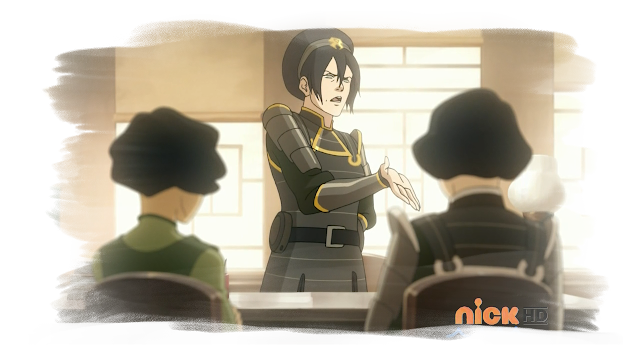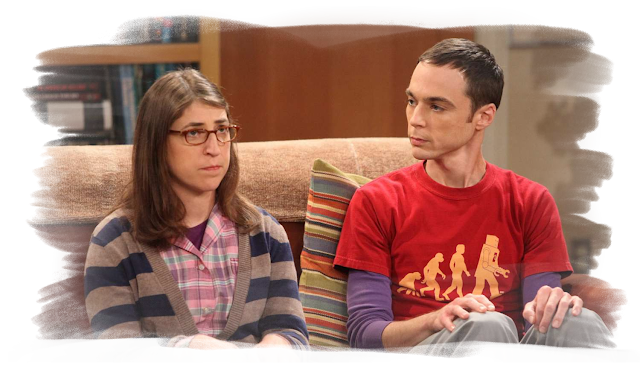Writing Disability: Let us Love like everyone else
 |
| ID: An illustrated picture of a red rose on a pink background. To the left of the rose is white text that reads "Writing Disability: Let us Love like everyone else. /End ID] |
Romance is one of the top-selling genres in the world across mediums, and pretty much every movie, TV show, book and game has at least one romance sub-plot. You don’t need to look far to find it. However, when it comes to disabled characters, a lot of creators shy away from giving us romantic plot lines or even hesitate to address the topic of disability and attraction being present in the same character at all. So, since it’s Valentine’s day, I thought now would be the perfect time to discuss it.
It can be easy to miss if you aren't paying attention, but a surprising number of stories in various mediums will pair up most if not all of their main cast of characters by the end of the plot… with the exception of the disabled characters. whether they be explicitly stated to be disabled or just coded as such, disabled characters are more frequently left out of relationships by the story's end. Sometimes, the disabled character will be completely disinterested or the subject is just never addressed, such as with Toph from Avatar the Last Airbender. Toph is implied to have had multiple relationships by the time of the sequel series, but unlike the rest of the original gang, we never see it on screen, so I personally think it doesn't count for reasons I'll get into in a moment. Alternatively, the disabled character will show interest in someone, but their affection is just not reciprocated, such as in Disney’s Hunchback of Notre Dame. Disney's Hunchback is a particularly noteworthy example since it's one of the only theatrical Disney movies where the main character has a clearly stated love interest, but doesn't end up with them by the end.
[ID: an screenshot of the hunchback of notre dame showing Quasiemodo, a man with a hunchback and facial differences swinging and singing on at spire at the top of the notre dame cathedral. /End ID]
In the latter case, where the disabled character’s love is not reciprocated, these stories will often focus on the importance of self-discovery and self-love. An important message to be sure, but the fact that these “you don’t need a partner as long as you love yourself” stories very often centre disabled characters is frustrating, to say the least (If the character isn’t disabled, they’re often deemed “undesirable" for other reasons, such as being fat, but that’s a topic for another day).
Of course, the reason the character doesn’t end up with their love interest doesn't have to be because of their disability specifically. Even if they were turned down for other reasons, it can still contribute to the stereotype that disabled people can’t find love even when they want to, just aren’t desirable as partners (a sentiment that is especially commonly directed at visibly disabled people) and contributes to the overall lack of representation of disabled relationships.
In the other case I mentioned before, where a disabled character is just not interested in romance, can look different depending on the kind of disability the character has, but in my experience, it often comes from the same place: discomfort. This isn't necessarily a conscious thought or decision on the creator’s end, mind you, but just because it's not intentional, doesn't mean it's not doing harm, even if it’s subconsciously.
A lot of the time, many creators don't even consider giving their disabled characters a love interest. the thought never even occurs to them. I can't pretend to know why for sure, but if I had to take a guess, its because the idea of disability and romance just don't go together in most people's eyes, so the thought never even crosses these creator's minds. But why? it comes back to that discomfort.
When we are talking about physical disabilities and those effecting the body but not the brain, the discomfort can come from a few places. First is the discomfort with disabled and visibly different bodies and how they work as a whole. I've spoken about this in the past, but just the idea of disability alone often makes non-disabled people deeply uncomfortable, and when it comes to visible disabilities, they are often forced to confront that, something that a lot of people are resistant to. they don't like thinking about it, and while many non-disabled creators have dealt with this discomfort enough to include us in their stories, they haven't deconstructed it enough to include us having things like romantic relationships.
This is why, despite the fact that Toph has children in The Legend of Korra, I’m still using her as an example. We see the other main character’s relationships and partners in the original show and in The Legend of Korra directly, but never hers. The most we ever hear of Toph’s love life is that Sue and Lin, her daughters, have different fathers. While the mention was good, when looking at this through the lens of “people are uncomfortable with disabled people being in relationships” you can see how the openly disabled character’s relationships only ever happening off screen and occasionally mentioned might still be an issue, even if that wasn’t the creator’s intent.
[ID: screenshot of the legend of Korra showing Toph, a middle-aged woman with black hair and metal armour, lecturing her two daughters. /End ID]
this disparity becomes particularly noticeable, however, in media aimed at an older audience where romantic relationships often mean sex. When the relationship is expected to be sexual in nature, an extra layer of discomfort often appears. A lot of people just quite simply don't understand how sex works when you have a physical disability, and are extremely uncomfortable simply looking it up (there are educational resources out there on the subject, and even disability content creators who focus on educating people about sex and disability, I’m not talking about looking up porn). Often times, they just avoid it by simply not giving their disabled characters relationships of any kind to avoid having to address those questions.
There is also the fact that many people infantilise those with disabilities and associate us with children. This is more common when it comes to non-physical disabilities, such as those under the neurodivergent umbrella (which refers to any disability that primarily impacts the brain) and I'll talk about that in a moment, but it does happen with physical disabilities too, most notably with little people and disabilities that impact someone’s height or physical development. Often, for those of us with physical disabilities, the infantilization comes from people either directly associating us with children because of our appearance, or feeling as though we need to be protected like children.
When talking about disabled people in relationships, this might look like someone being hesitant to pair a disabled character up with someone without a disability because they “can’t protect themselves” if the relationship goes bad. This isn’t something I’ve seen stated directly much in media, mind you, but it is a response I’ve gotten from a surprising number of people in real life when I’ve asked why they don’t like the idea of “people like me” (meaning amputees and wheelchair users) dating. I wouldn’t be surprised if it’s the reason some authors and creatives avoid inter-abled relationships in their works based on how often I got that comment when I started dating; they are concerned about the power imbalance. but this mindset is based on both infantilization and the stereotype that physically disabled people are always inherently weaker. If you’re not always worried about how non-disabled characters would protect themselves in a relationship, why are you only worried it when one of the characters is disabled?
However, like I mentioned before, the disabled character being simply uninterested in romance or sex isn't unique to visibly and physically disabled people. It’s is so common with neurodivergent folks, in fact that it’s become a bunch of tropes all of their own, with the most common variant being where specifically autistic or autistic-coded characters will often be the only aromatic or asexual people in a story’s cast.
For those unfamiliar with the terms, aromatic people are those who experience little to no romantic attraction, or those who experience it differently to most, while asexual people are those who experience little to no sexual attraction (or, again, experience it differently to most). It’s a bit more complex than that, and both terms exist on a spectrum, but in order not to get too side-tracked, I’ll leave it there. I‘d highly, highly recommend Jaiden Animation’s video on the subject though if you want to learn more in a beginner-friendly way.
There’s this idea that a lot of non-disabled people get about neurodivergent folks, especially those with developmental or intellectual disabilities, that we are these sweet little innocent beans who don’t want to or simply can’t engage with “adult” things. In most cases though, this isn’t the true. For some folks, including many creators, this is once again an unconscious bias and is the result of them simply not thinking about or deconstructing their ideas around different kinds of disabilities. In these cases, the idea usually stems from the fact that there are some (keyword some) disabilities under this category that do impact someone’s ability to engage with things like sex and romantic relationships, and most people not overly familiar with the disability community just don’t know enough to understand that just because some people under this category can’t or don’t want to engage, doesn’t mean we all can’t.
Unfortunately though, when this is pointed out to a lot of people, instead of adjusting their viewpoint or seeking more information, they get severally uncomfortable about the idea, even going so far as calling someone who is dating someone with a developmental or intellectual disability as “creepy” because they, once again, associate people with these kinds of disabilities with children. Since children can’t consent, neither can we. This is, once again, infantilization, but much more directly.
While I haven’t seen the full episode (or much of the show as a whole), so I don’t really want to comment on weather it handled the subject well, I do at least appreciate that the show Glee calls this line of thinking out when one of the characters, Becky, who has down’s syndrome, begins dating someone without a disability. The parts of the episode I have seen shows several characters around Becky expressing concern, but their bias is called out by the end of the episode. What I have seen of Glee was during a particularly long stay in hospital while being given pretty strong medication so my memory of it is spotty (not to mention everything was out of order) so like I said, I can’t comment on weather or not it was good per say, but I do remember the discussion this episode sparked in my high school with students and teachers alike, and I remember it being the starting point for some important conversations with people.
As I said, there are some disabilities under the neurodivergent umbrella that might prevent a character from engaging in a romantic or sexual relationship. some. however, it's incredibly important to remember that a lot of these kinds of disabilities exist on a spectrum of support needs, and if the character in question's disability would be preventing them from doing so, they would typically be on the very severe ends of those spectrums and have very substantial support needs in other areas of life too. The vast majority of neurodivergent characters in media don't fall into this category. If you are writing someone who has these higher support needs (and please do, we need more characters like that!), be sure to do your research and double check your assumptions about their capability to engage though. Ensure it's actually reflective of their disability and isn't just based on stereotypes and misinformation. And don't forget, if you’re ever unsure, you can always check with a sensitivity reader or disability consultant.
Even in cases where a disabled character does get into a relationship, one of a few things frequently happen that I think authors might want to be mindful to avoid - or at least approach with caution.
The first is that the disabled character, despite being in a relationship, will be completely disinterested in sex (or any part of a physical relationship, such as kissing, if the content is aimed at a younger audience), often being implied or directly stated to be asexual. The first example of this that springs to mind for me is Sheldon Cooper from the Big Bang Theory. While Sheldon is never confirmed as autistic within the show, he displays many autistic traits throughout both the original show (albeit in a stereotypical way that’s played mostly for laughs) and in the spin-off, Young Sheldon. When Sheldon does eventually get into a relationship though and even gets married, he is shown to be very, very reluctant and overall disinterested in sex.
[ID: A screenshot from Big Bang Theory of Amy and Sheldon sitting on a couch, where Amy looks annoyed towards someone off camera, while sheldon looks at her, confused. /End ID]
So what’s the problem with this? in a vacuum, nothing. Some people don’t care for sex and don’t experience sexual attraction, and it’s fine to show that - we need more ace representation! I myself am disabled (an amputee and autistic) and asexual, shouldn’t I be glad to see characters like me?
Well, the issue isn’t that this is unrealistic, but rather overplayed and often contains a lot of misinformation about both asexual people and disabled folks.
My disabilities have nothing to do with my asexuality - which remember just means someone doesn’t experience sexual attraction; it has nothing to do with weather or not someone enjoys sex. However whenever asexuality and disability are paired together in the same character, it’s almost always because of the character’s disability. As in, the person in the wheelchair is ace because they can’t feel anything down there so they stopped feeling attracted to people (which is not even close to how that works, but is a real example I’ve seen on a few occasions now) or the autistic person is just too invested in telling you about trains, science, superhero’s or whatever their special interest is, to be worried about sex.
The other issue is, like I said, there’s a lot of examples of disabled ace characters already, and considering how poorly most are handled, many disabled people and asexual people alike are just tired of seeing it. Honestly, until both disability and ace representation and understanding as a whole, improve independently, it’s a combination of identities I’d recommend avoiding in your work, at least for now.
Finally, when a disabled character does enter a relationship, sexual or not, a very common dynamic is that the character will often get very insecure and scared that the person they’re dating doesn’t actually like them, or worries that the other person is settling for them, often resulting in their partner reassuring them that they love them, "despite their disability." A recent example of this can be seen in the web series Helluva boss between the character Fizzarolli, an imp who is a quadrilateral amputee with broken horns and facial scarring, and his boyfriend Asmodeus. While Fizzarolli’s insecurities are primarily focused on living up to impossible standards for success, he shouts during a panic attack that he believes that Asmodeus will leave him if he isn't successful, stating that without it, "this is who I am" - ripping off his hat to show his broken horns and scars (something we are told that he acquired in the same accident he lost his limbs in).
My problem with scenarios like these is once again, not that it’s unrealistic, but that it shows up constantly. The intention with these kinds of scenes is often to assure the character and by extension, disabled readers or viewers, that they are in fact deserving of love. That just because they’re disabled, doesn’t mean they’ll never find anyone. Once again, it's a good message, however, because of how prevalent this exact scene is, it can actually have the opposite effect.
Let’s step back from disability for a moment: If you see dozens and dozens of people with a feature you have, saying they are insecure about that same feature in almost all of of the shows you watch, the books you read, the games you play where characters with this feature appear, even if you aren’t insecure about it yourself, seeing over and over again that others are, it’s natural that it would start to make you doubt or wonder if you should be. Doubly so if that very insecurity prompts these big, often explosive and emotional scenes.
This was the case for me as a kid, I never really cared much about my disability outside of being annoyed that people stared at me, but as I got older, and I saw more and more characters in the media I consumed saying they were certain no one could love someone like them - someone like me - I became more and more worried. The messages that were supposed to be reassurances, instead told me over and over that the people these characters ”found” were the exception, not the rule, and that most people would, in fact, care that I was disabled and not want to date me. When all my friends began dating and getting into relationships, I began to worry that I would never find “my exception to the rule” and be alone forever.
I didn’t really get over that mindset until well into my 20’s, well into my current relationship with my now fiancé, and I know I wasn’t alone in these concerns. I used to work with teenage amputees, and this was a very, very common fear across all genders and sexualities. I still see it in forums and social media groups whenever newly disabled people join, it’s one of the more common fears brought up, and while I get that scenes like these are meant to reflect this reality and help, more often than not, they’re doing the opposite.
For once, I would love to see a disabled character get into a relationship, and for there not to be any mention of “are you sure?” “How could you ever love someone like me?” “I’m worried you don’t actually find me attractive” etc. These conversations are realistic, yes, but we see them so often that I just really wish I could see more examples of stories where the validity of the disabled character’s relationship is never questioned and is never a concern. It just is.
Of course, as with most of the subjects I’ve talked about before, many of these points are less of a concern if you have multiple disabled characters. If you only have one disabled character and have their love interest reject them, it can perpetuate these stereotypes about disabled people being unable to find love, but if you have another character who is successful in that reguard? Well, it’s much less of a concern. The same goes for if one of your disabled characters is asexual or aromantic, but there’s another disabled character who isn’t, or if one disabled character is insecure about their disability in their relationship, but another isn’t.
Of course, be mindful not to go too far in the other direction either. A lot of people are pretty shocked to learn that disability fetishization is also a thing, and while you shouldn’t shy away from showing disabled characters in sexual relationships just because they’re disabled, it is something you need to be mindful of if your story contains more explicit content. As a general rule of thumb, sowing your disabled characters engaging in the same kinds of relationships, romantic and sexual (including casual hook-ups and one-night-stands) is great, so long as it a) fits the character and the story, and b) is actually inline with how you’re treating those topics with the non-disabled characters.
Personally, I don’t really feel like I’m the best person to advise on where exactly that line between just showing disabled people in sexual relationships/situations and fetishisation is, though the general advice I’ve heard is to ask yourself if the focus is on the disability, or if the person just happens to be disabled. On that same note, I’m also not really comfortable explaining details of how sex works when you’re disabled. If you want to know about either of these topics, there are a plethora of disability content creators who focus specifically on those subjects.
To sum this all up though, disabled adults are, well, adults, so don’t be afraid to treat us as such. Show us in relationships where the non-disabled partner’s affection isn’t a matter of debate or insecurity, show us being intimate and having sex (if that’s something you were doing with your non-disabled characters), let us be confident in those relationships, the same as everyone else, and most importantly, remember that a disability doesn’t automatically mean someone just won’t be interested in us, or we won’t be interested in them.

Comments